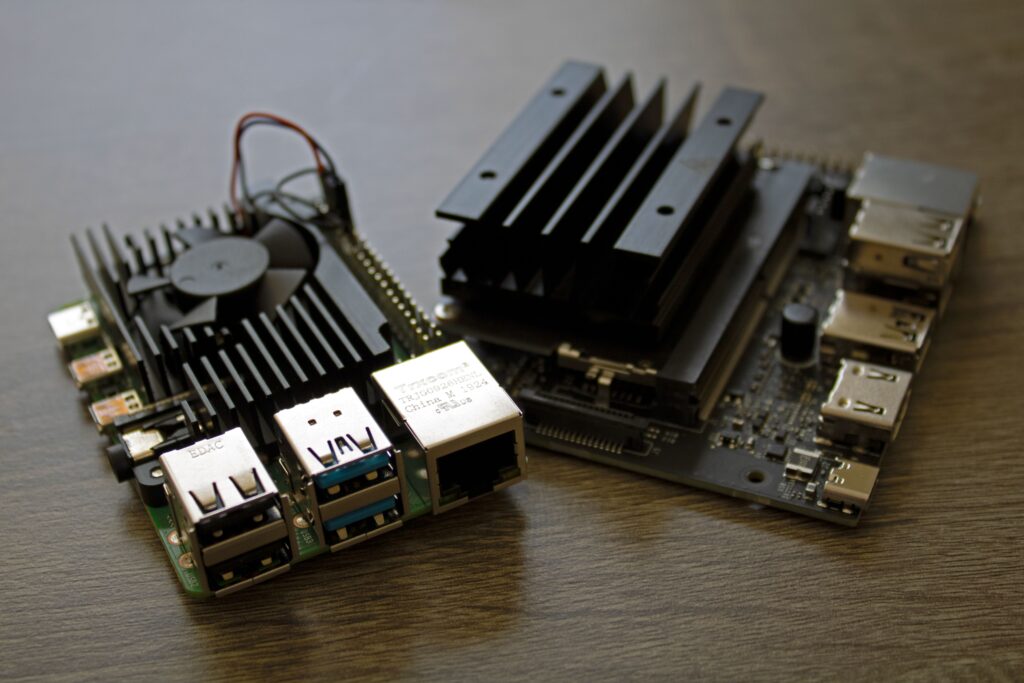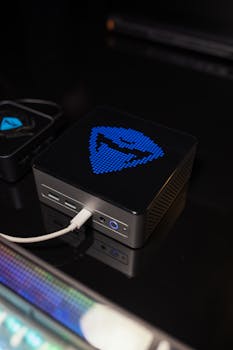When advancing your tech skills and career, demonstrating initiative through practical projects can make a significant difference. Building and managing a homelab is an excellent way to showcase your creativity, problem-solving skills, and ability to learn independently. But a common decision arises when starting your homelab journey: Should you use a Raspberry Pi or a Mini PC? Let’s explore the technical aspects of both options while keeping things approachable.

Raspberry Pi: Compact, Versatile, and Innovative
The Raspberry Pi is a popular choice for learners and hobbyists. It’s low-cost, energy-efficient, and incredibly adaptable. Typically equipped with up to 8GB RAM and a quad-core ARM processor, it offers a unique opportunity to learn optimization and resource management skills.
Common Raspberry Pi projects include:
Running Docker containers for small-scale applications and services.
Setting up lightweight Kubernetes clusters using K3s.
Building automation workflows using Node-RED or Python scripts.
These projects emphasize resourcefulness and innovation, both highly valued in technology roles.
Mini PC: Powerful and Enterprise-Ready
Mini PCs, such as Intel NUCs, provide greater processing power, storage capacity, and expandability, often featuring Intel i5 or i7 processors, 16-32GB RAM, and substantial storage options. This makes them ideal for replicating more complex and demanding enterprise environments.
Popular Mini PC homelab projects include:
- Virtualization setups using VMware ESXi, Proxmox, or Hyper-V.
- Advanced networking scenarios using tools like pfSense or OPNsense for firewall and routing management.
- Security-focused labs with platforms such as Kali Linux, Metasploit, and Wireshark for penetration testing and cybersecurity training.
Mini PCs are especially suited for those aiming to gain hands-on experience with enterprise-level tools and environments.
Mini PC’s are a great option to explore Microsoft based projects as they can run Windows 11 and Server OS allowing you to replicate enterprise environments.

Choosing the Right Option for Your Goals
Your choice between a Raspberry Pi and a Mini PC should align with your career objectives and areas of interest:
- Opt for a Raspberry Pi if: You’re new to homelabs, working within a limited budget, or enjoy creatively solving problems and learning resource optimization.
- Opt for a Mini PC if: You’re interested in replicating professional IT setups, exploring virtualization, or delving into advanced networking and cybersecurity.
The Best of Both?
Why not combined hardware to get maximum capability (and replicate enterprise setups)
Most organisations have a mix of Windows and linux servers, sometimes a mix of proprietry and opensource softwares.
It’s not uncommon to find that the support teams know one, or the other technology, but not always both, why not use your homelab to get hands on and become the MVP in your team!
Maximizing Your Career Advantage
Ultimately, the most significant benefit of a homelab is the experience gained through practical application. Both Raspberry Pis and Mini PCs are excellent platforms for hands-on learning and showcasing your technical capabilities.
Getting Started
Whichever you choose, the key is to begin experimenting and building now. Document your projects and outcomes to demonstrate your capabilities clearly.
Ready to Begin?
Below you’ll find recommended shopping lists to help you get started building your Raspberry Pi or Mini PC homelab!
